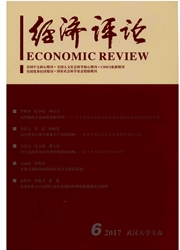

 中文摘要:
中文摘要:
本文采用中国制造业27个分行业2003-2013年的面板数据,考察了双向FDI的生产率效应。结果发现:外向FDI、行业集中度以及人力资本对中国制造业生产率具有显著的促进作用,而内向FDI、国内研发、资本劳动比、出口依存度未表现出显著的正向溢出效应。此外,我们还发现制造业吸引外资与对外投资之间存在互动效应,且内向FDI与外向FDI的生产率效应存在明显的行业差异;人力资本仅在外向FDI上对制造业生产率产生提升作用,双向FDI生产率效应的影响存在显著的门槛特征。这可能源于中国制造业仍以传统的低技术制造业为主,跨国公司对高端核心技术转移的严格控制和部分国内人才外流导致了在中、高技术制造业中人力资本的低效率。
 英文摘要:
英文摘要:
Based on the panel data of 27 manufacturing sub-sectors from 2003 to 2013 ,this paper empirically investigates the productivity effects of bidirectional FDI. It arrives at the following conclusions: Firstly, outward FDI, concentration ratio, and human capital play the significantly positive roles in the productivity of manufacturing industry, but inward FDI, domestic R&D, capital-labor ratio, and export dependent ratio have no significantly positive spillover effects. Secondly, it also indicates that there exists the mutually positive effects between inward and outward FDI, and the productivity effects of inward and outward FDI vary with the industries. Thirdly,it shows that human capital can promote manufacturing productivity only in outward FDI, but its influence on the productivity effects of bidirectional FDI has significant threshold characteristics.The possible reason lies in the traditional low-technology manufacturing industries in China,and the low efficiency of human capital in medium and high-technology manufacturing industries resulting from the strict control of core- technology transformation from foreign enterprises and the partial brain drain from domestic enterprises.
 同期刊论文项目
同期刊论文项目
 同项目期刊论文
同项目期刊论文
 期刊信息
期刊信息
